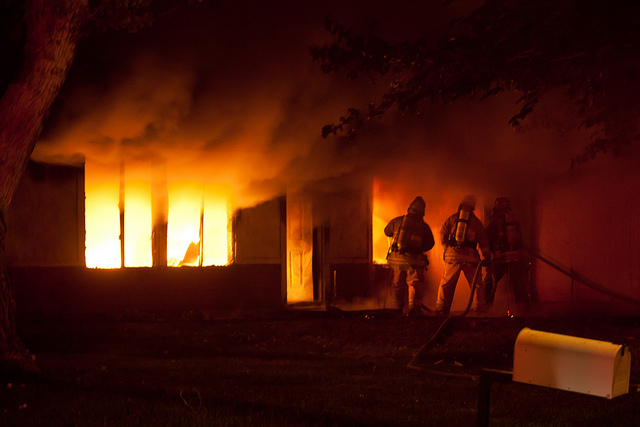Fire and Water Damage – Health Precautions
If you’re in the midst of a water, fire or smoke disaster, keep in mind the following health precautions:
Bacteria & Mold Hazards Associated with Water Damage
Water damaged building interiors provide a “prime” environment for the growth and reproduction of bacteria and moldMold is a type of fungus that grows in damp or humid conditi... More. Both are parasitic, i.e., they rely on dead or decaying organic matter for food. Favorite foods for bacteria and moldMold is a type of fungus that grows in damp or humid conditi... More are cellulose based building material, such as wood, drywall and any soiled surface. Synthetic carpet fibers do not support microbial growth but the soils attached to them certainly do. These factors, coupled with warm humid air, create the ideal environment for reproduction. Bacteria and moldMold is a type of fungus that grows in damp or humid conditi... More may cause allergic reactions, arthritis, puffy eyes, chronic cough, rheumatism, asthma, depression and headache.
Fire and water damage restoration must be performed by trained technicians who understand proper procedures and applications. Trained personnel will provide the necessary adjustments to the environment by altering temperature and humidityHumidity is the amount of moisture or water vapor present in... More levels to deter production of bacterial and moldMold is a type of fungus that grows in damp or humid conditi... More and setting up professional dryingDrying is the process of removing moisture from materials, s... More equipment to facilitate complete structural dryingDrying is the process of removing moisture from materials, s... More.
Breathing & Electrical Hazards Associated with Fire Damage
Structures that have been affected by fire may have strong, potentially toxic, odors. Never enter a smoking or smoldering area without the proper breathing equipment. Fires can also compromise electrical systems presenting serious electrical hazards. Do not attempt to unplug burned appliances or equipment unless you are certain that the power to the building has been shut-off. Failure to do so could result in electrical shock.
Residual water from fire fighting will add to the damage as mentioned above, creating health concerns. There may be fallen debris containing sharp surfaces, in addition to slip or trip hazards. Emergency services may be necessary to stabilize the structureStructure refers to the framework or components of a buildin... More, make it safe for occupancy and restorationRestoration is the process of returning a property to its pr... More, and mitigateTo mitigate is to reduce or limit the severity of damage, ri... More against further damage.
Asbestos
Federal, state and local regulations require owners and operators of non-residentialNon-residential refers to buildings or spaces used for comme... More buildings and structures to conduct asbestos surveys. You can rely on restoration professionals to comply with federal, state and local EPA and OSHA regulations while performing work.













